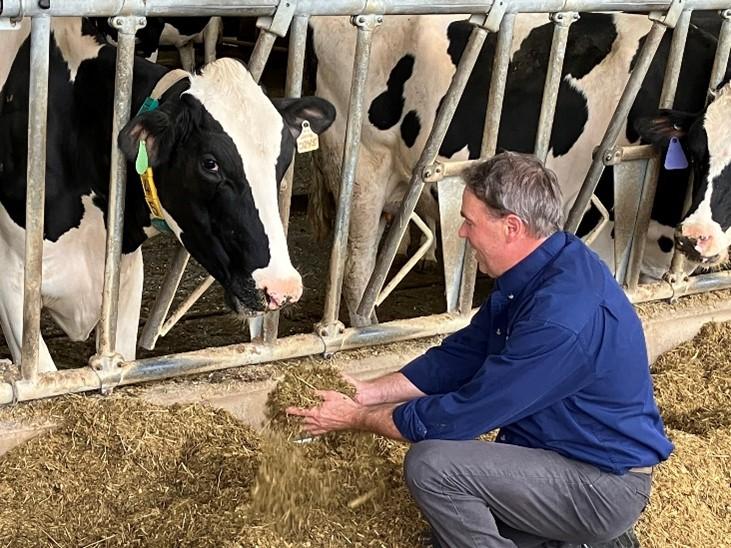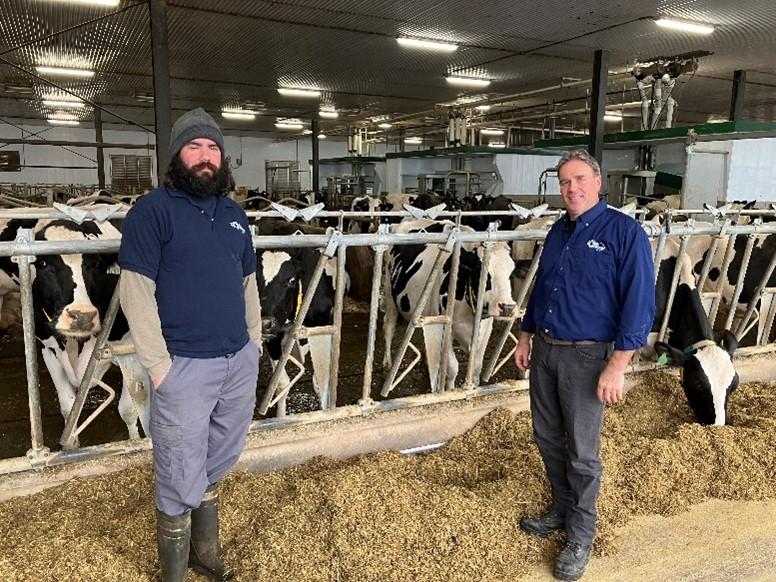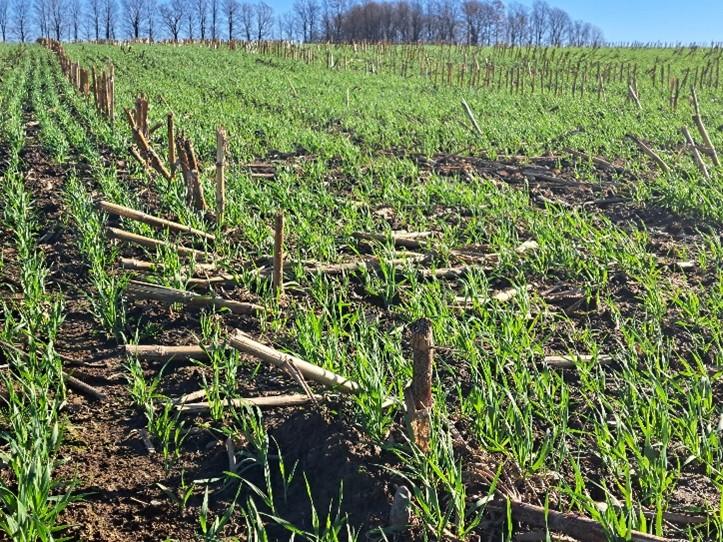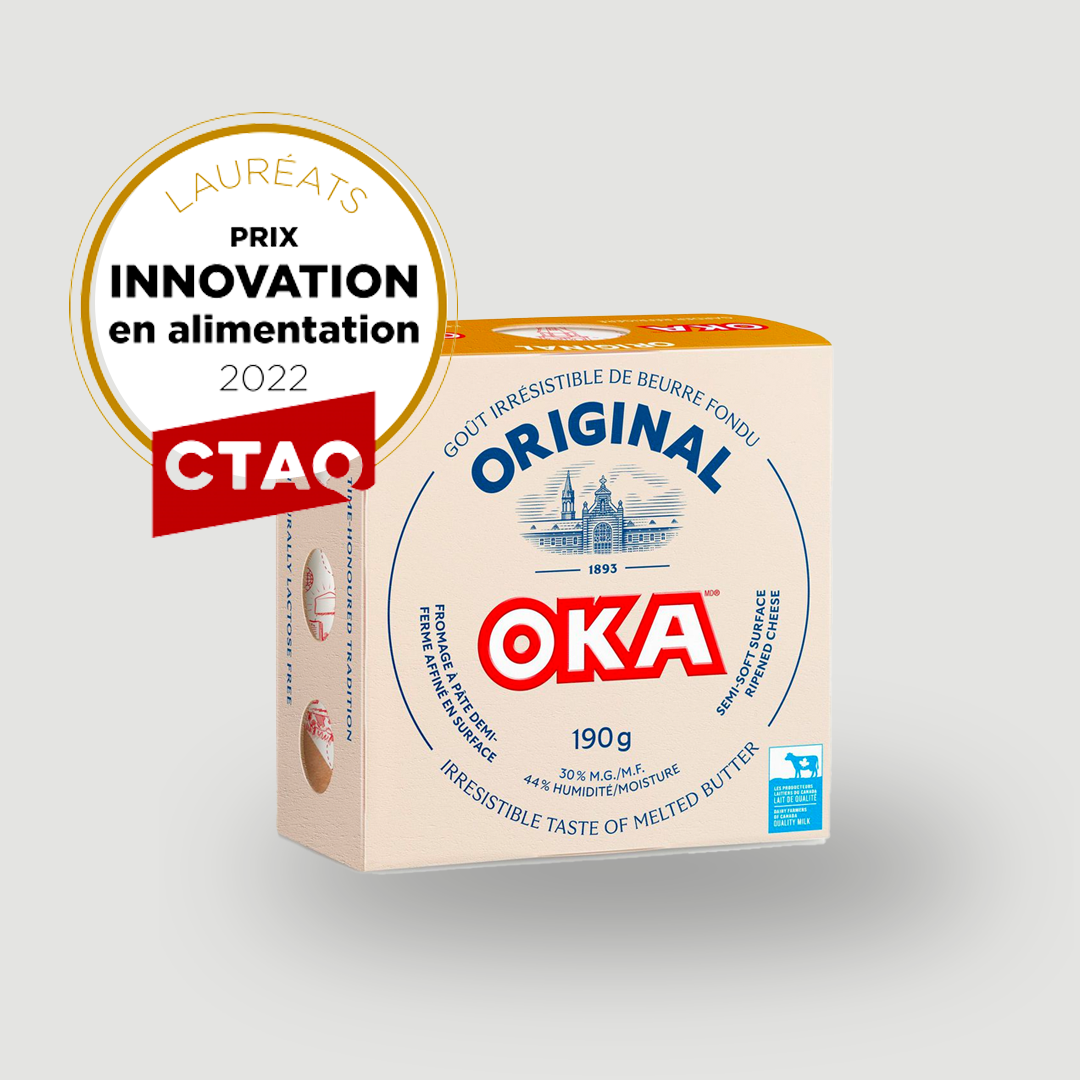René Bessette, a producer looking to the future

Being mindful of his animals’ welfare and respecting the environment are factors in his success
René Bessette admits he has always had a positive view of changes to farming practices that improve animal welfare and the environment. For him, these changes have been a good thing for both the health of the planet and the financial health of farm businesses. It is this same open-mindedness that led him to adopt free stalls a few years ago. Today, he is pleased that he made this decision because, as he explains, it has improved his herd’s quality of life and has considerably reduced the amount of work required in the barn.
He and his son Guillaume, an agriculture graduate from Laval University who, in 2015, became the fifth generation of the family to work on the farm, realized that building a new barn based on the free stall concept was the only way forward to optimize the farm’s bottom line. “We have two goals: Animal welfare and the well-being of our shareholders,” he says with a smile. “We want to regain our position as a leader in animal welfare and mitigate the labour shortages.” On this last point, the father and son were correct, since employees who were thinking about retiring changed their minds. “The work became less physically demanding with the introduction of robotics, so they decided to stay on,” says the producer.
Covering an area of 259 hectares, 50% of which is hay, Ferme Bessette & Frères in Waterville (in the Estrie-Granby region) has a herd of 140 cows. Over the years, the farm has incorporated practices that have improved animal welfare and their environmental footprint. This last summer, the owners took part in Agropur’s Sustainable Farms pilot project, designed to support the Cooperative’s efforts to demonstrate the work done by its members regarding animal welfare and the environment.
Changing to free stalls caused stress for the cows at first, but this was short-lived. The pros greatly outweighed the cons from that point forward. “We’re at about the same level in terms of milk performance, but there have been many benefits to the cows’ health. Vet costs have dropped. The cattle are sick less often. We can see that things are going well in the barn,” Guillaume says. He notes that, in addition to free stalls housings, the introduction of robotics has greatly improved the herd’s health. His father, René, chimes in: “The biggest difference I see is the huge drop in mastitis incident. It’s like night and day. We introduced the concept of total freedom, and the cows love it. It seems to be highly beneficial to their immune system,” he says enthusiastically.
A keen interest in soil health
The Bessettes also stay abreast of advances in environmental best practices. They have observed changes in the frequency and intensity of rainfall over the last few years, leading to nutrients being leached from the soil. “We have to work with Mother Nature, not against her.” The agricultural practices that the Bessettes have implemented to adapt to this situation include seeding an 80 to 100-foot band around their corn fields. This has not only reduced soil compaction but has also increased biodiversity. Over the years, the Bessettes have observed that, as the health of the soil has improved, the need for synthetic fertilizers and pesticides declined.
Windbreak hedges have been planted around the buildings on the property, as along with a 20-metre riparian strip along the river. This was done by sixth-grade students from the local elementary school as part of a project.
“I’m interested in dispelling the belief held by some producers that adopting environmentally friendly practices means additional expense. On the contrary, I’ve realized over the last 40 years that, in the long term, these investments are very profitable for producers,” says René.

René Bessette (right) and his son Guillaume (left) are, respectively, the fourth and fifth generations to run the farm.

Cover crops after the harvest at Ferme Bessette. This agri-environmental practice offers several advantages to agricultural producers, such as reducing soil erosion and improving overall soil health.
NEXT NEWS
OKA’s new packaging wins award
The new packaging for our emblematic OKA cheese has just been launched and is getting noticed. It won the Prix Innovation en alimentation 2022 from the CTAQ (Conseil de la transformation alimentaire du Québec) in the Packaging category on November 17.








